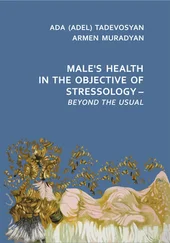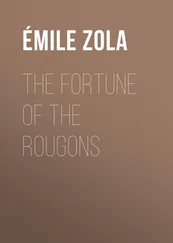He spoke these words in an almost blustering way. Nora saw in him a kind of lazy pupil’s ill will that she knew too well from school to be afraid of it or to get angry. She preferred to ski away, as though she hadn’t noticed. “We’ll start by practising the snowplow. You use the snowplow to brake. It helps you to reduce your speed, of course, and, if you’re not going too fast, to stop. The movement is very simple. Instead of skiing with your skis parallel, you open them up at an angle, meeting at a point in the front. Watch carefully how I do it, then we’ll try it together.”
Nora set off in her downhill posture, which she had shown him in the morning, but, when she began to gather speed, she bent her knees more deeply and separated her skis behind her, bringing them closer together at the front. With the tips together, the skis opened like the blades of a pair of scissors, while her forward progress slowed automatically, halted by her braking movement.
“Is that hard?” Nora asked.
“No. It looks simple to me.”
Yet it turned out to be harder than it had looked when he was watching, for he fell on his first attempt. In the instant in which he tried to separate his skis, he felt an unexpected resistance in his ankle, as though someone had placed a clamp there. He got up out of the snow without a word and set off again. His skis seemed indescribably light, the snow was soft and deep, the sensation of hurtling down the valley was like a delicious soaring — but Nora’s voice called him to his obligations: “Snowplow! Snowplow!”
He tried again to open his skis, and again he felt the same resistance, which flung him to the ground.
He was beginning to feel spiteful towards Nora, towards the snow and, above all, towards that damned snowplow that didn’t work. “Why did I fall?”
“Because you made a mistake. Things are very simple in skiing: if you make a mistake, you fall.”
She had hoped to extract a smile from him, but he didn’t take it as a joke. With the peak of his cap rammed down over his eyes, his jacket covered in snow, his skis crossed, he was like an infuriated pupil.
“Let’s start again, Paul. Pay more attention. You have to place all of your weight on both skis. Don’t turn your ski on its side when you enter the snowplow: leave it flat with the entire sole on the snow.”
Paul rebelled.
“No, Nora, I don’t want to anymore. It’s too complicated. I don’t want to learn anymore. I know enough to go downhill. I want to fall. Like I did this morning.”
He set off quickly, fearing she might stop him, with his skis parallel, leaning forward over them, and with his arms spread like two wings. After his initial burst of speed, he felt that he was no longer master of his movements, that he could no longer even turn around, nor stop, and that he was caught in a dizzying flight. Again, the same intense white light overwhelmed him. There was no longer anything beyond that light — neither him nor the world. Random images — a tree, another one, a girl, a red pennant — brushed past him at an insane speed and perished behind him as in a dream. He didn’t even realize that he had fallen. For a few seconds it seemed to him that the flight was continuing. There was an enormous light inside him that refused to go out.
Nora was above him, silent, waiting for him to wake up. Laughing, Paul asked her: “Now you’re going to scold me, right?”
“No.” She flung herself down in the snow alongside him and took a friendly grip on his arm. “Listen, Paul. There are two great dangers in skiing: believing that it’s too hard and believing that it’s too easy. Skiing is neither as hard as you thought it was yesterday, nor as easy as you think it is today. What you’re doing isn’t even an act of courage: it’s madness. Skiing doesn’t mean skidding blindly down the valley. You have to be in control of your speed. To be able to stop when you want to. To be able to turn when you want to. If you want to commit suicide, just tell me. I know other methods that work better.”
She spoke in her level, teacher’s voice. Paul listened to her submissively.
“Tell me what you want me to do and I’ll do it.”
“You have to listen to me. It’s indispensable that you listen to me. I want to make a good skier of you. It’s possible that your whole life from now on will depend on this…”
It didn’t strike him as exaggerated to hear her talking like this. In fact, if skiing was this enormous light which in truth he had experienced for only a few seconds, then maybe his whole life could begin again. “Shall we go back to the snowplow?” he asked, resigned.
“Yes, let’s go back. And we’re not going to stop until we know it. Once, ten times, a hundred times. Do you promise?”
“I swear.”
They came back to the cabin late, in the dark. Hagen was waiting for them in front of the house with a lamp that he was swinging between the pine trees in order to show them the trail from a distance. Faffner greeted them with friendly growls.
Inside the house it was warm, the fire was burning and tall flames filled the fireplace. A smell of tea and tobacco gave the warmth a sleepy, aromatic air.
“Where’s Gunther?” Nora asked.
Hagen did not reply to the question, but he passed Nora a piece of paper. “Gunther sent you this.”
Nora unfolded the sheet and read: Hagen said that you asked about me. I thank you. I’m sorry I won’t be able to come downstairs tonight, either. Please stay here. I’m happy that you’re here. I think that tomorrow I’ll be able to see you.
Nora, lifting her head, directed an enquiring gaze at Hagen. “Is he ill?”
“He’s not ill. He’s tired.”
It was obvious that he didn’t want to say anything more. Nora regarded him with a certain fear. Why did I stay here alone with him? Paul had gone upstairs to change out of his ski clothes, which were damp with melting snow. She heard him moving around in the upstairs room. A stupid but reassuring thought passed through her mind: If I scream, he’ll hear me.
Hagen pulled his cape over his shoulders and remained standing in his heavy black jacket. He has such blue eyes and yet he’s so dark! Nora thought. She was next to the bookshelf, in front of the same delicate portrait of a woman that she had also looked at last night.
“Is that Gunther’s mother?”
“Yes. That’s young Mrs. Grodeck.”
She has Gunther’s eyes, but not his gaze , Nora thought to herself, remembering the expression of tenderness with which the boy had looked at this portrait.
“Doesn’t she come here?”
“Who?”
“Mrs. Grodeck. Young Mrs. Grodeck, as you call her.”
Hagen did not reply. The question appeared to trouble him. “I’m going to see what Gunther is doing,” he said suddenly. “He may need me.”
Nora walked to the window and remained there for a while, plunged in thought. She didn’t even hear Paul when he came down the stairs and approached her. She gave a frightened shudder as he put his hand on her shoulder.
“What’s the matter, Nora? What’s happened?”
“You startled me. I didn’t realize it was you.”
“Who else could it be?”
“No one, of course. But there are so many strange things in this house.”
“What sorts of strange things?”
“I don’t really know. The boy in the tower who doesn’t come down and whom we’re forbidden to see. The man in the dark cape who refuses to answer questions. The portrait nobody’s allowed to ask about…”
Outside, the dog, hearing voices, came through the snow until he was beneath the window and stood up with his paws against the wall, looking at them through the glass with his good, watery eyes. Nora opened the door for him. “Come in, Faffner. Come inside. Maybe you can tell us what’s going on here.”
Читать дальше












